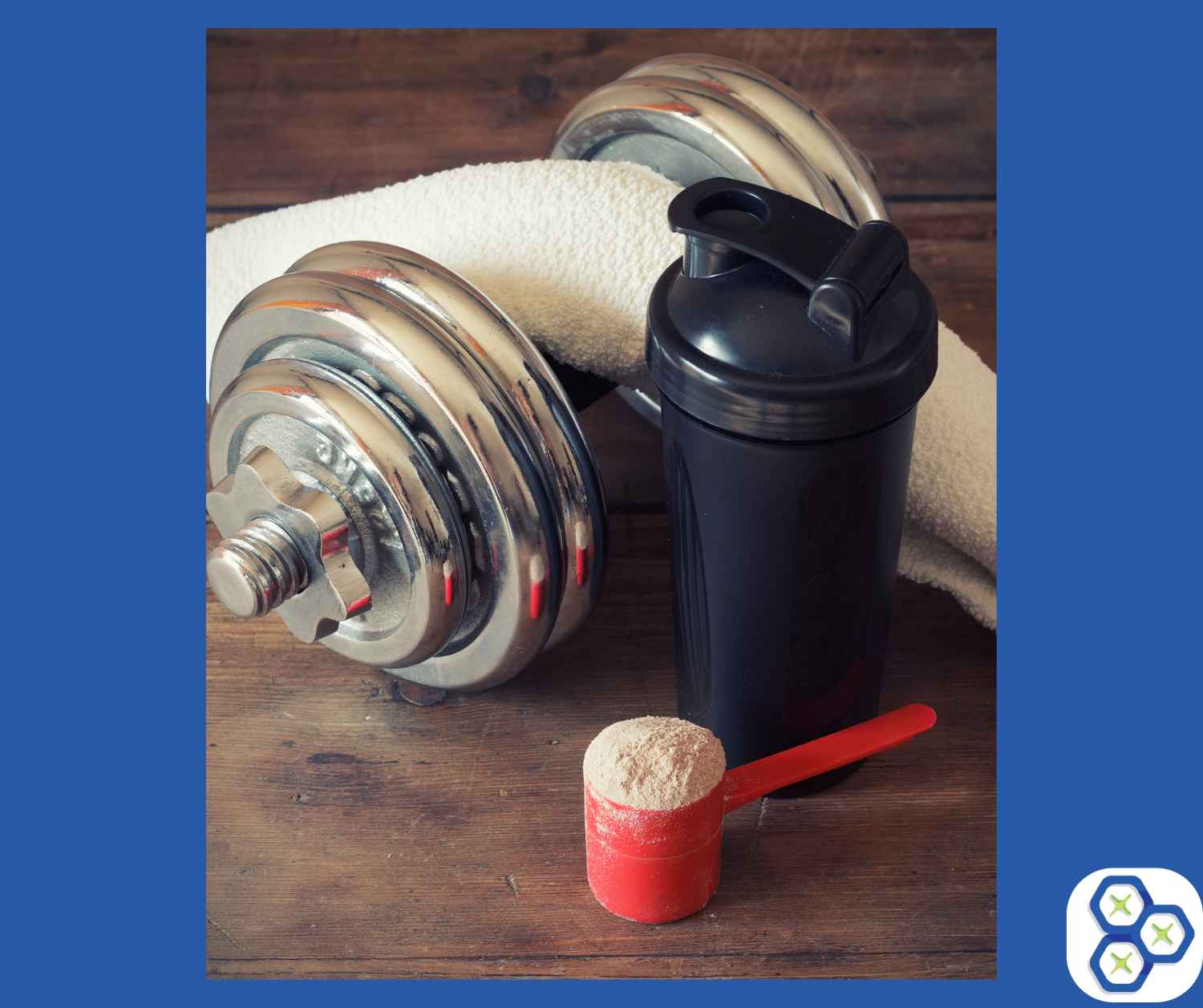Are Protein Powders Harming Your Health?
Protein powders aren’t just for bodybuilders or athletes anymore. People like you and I rely on these supplements for a quick protein boost.
The manufacturers of these powders ‘promise muscle growth and health benefits. But are they safe for everyone?
Shockingly, a Consumer Reports investigation found that several popular protein powders contain heavy metals like lead and arsenic—substances linked to serious health issues. Other than heavy metal toxicity, these powders also pose different health risks, especially for everyday users.
In this blog post, I’ll discuss the dangers of protein powders and what you should know before using them.
Why Do People Turn to Protein Powders?
46% of Americans consume protein powders daily. Why are protein powders so popular?
These powders are a quick fix for muscle repair, growth, and recovery, which makes them especially appealing to fitness enthusiasts.
The convenience factor is hard to ignore for the everyday person: a scoop of powder promises to replace a full meal or post-workout snack in seconds. Add to that bold claims of improved athletic performance, weight loss, and better health, and it’s easy to see why so many buy into the hype.
But do we need them?
These protein powders seem like a ‘better and quick’ solution for modern lifestyles, but the truth about what’s inside of them—and the risks they carry—raises serious questions about their safety and necessity.
General Dangers of Protein Powders
Protein powder side effects
Different protein powders cause different immediate side effects that depend on their ingredients. Some general (& common) side effects are;
- Digestive issues: Whey protein, which contains lactose, can lead to bloating, gas, or diarrhea, especially in individuals with lactose intolerance.
- Allergic reactions: Powders made from soy or casein can trigger allergies, causing symptoms like hives, swelling, or respiratory issues in sensitive individuals.
- Excessive protein intake: Consuming too much protein, particularly from powders, can strain the kidneys, especially in people with pre-existing kidney issues.
Read how much protein you should eat in a day here.
Long-term side effects of protein powders
A regular long-term user of protein powder is at the risk of;
- Kidney and liver health: A diet consistently high in protein may overwork the kidneys, potentially leading to chronic kidney disease in susceptible individuals. The liver may be unable to process all of the protein, especially if ANY alcohol is consumed as it slows the ability to synthesize protein for muscle growth.
- Nutritional imbalance: Overreliance on powders reduces whole-food consumption, depriving the body of essential nutrients like fiber, vitamins, and minerals.
The Hidden Risks of Heavy Metals in Protein Powders
How heavy metals enter protein powders
Heavy metals often contaminate protein powders through 3 major sources that are beyond consumer control:
- Soil contamination: Plant-based powders like soy and pea protein are grown in soil that contains metals like lead, nickel, and cadmium. Industrial pollution is a major contributor to this contamination.
- Manufacturing processes: Equipment processing and packaging protein powders can introduce trace metals like nickel and chromium.
- Flavor additives: Chocolate-flavored powders are risky due to the natural presence of metals like lead and cadmium in cocoa. The only way to avoid these exposures is to select the rigorously tested products. Also, quite often, the grinding process of the cocoa bean sheds contaminated metals into the powder.
Heavy metals commonly found in protein powders
- Nickel: Nickel is common in chocolate-flavored plant-based powder. It can cause allergic reactions, nausea, and gastrointestinal discomfort in sensitive individuals.
- Lead: Lead is found in both plant-based and some whey protein powders. Long-term exposure causes neurological issues, developmental problems, and kidney damage.
- Cadmium: Cadmium is more prevalent in plant-based powder, especially rice or pea protein. Cadmium accumulates in the kidneys and can impair their function over time.
- Mercury: Mercury contamination is rare but potentially present in marine-based powders. It can severely affect the nervous system and kidneys.
A Clean Label Project study found detectable heavy metal levels in over 70% of tested protein powders, highlighting this issue’s widespread nature.
How to Choose a Safer Protein Powder (You May Really Need To!)
If you have NO other option than using protein powders, take steps to minimize your risks:
- Look for third-party testing: Certifications like NSF Certified for Sport or USP ensure products meet safety standards.
. - Check for heavy metal testing: Choose brands that disclose heavy metal levels and are labeled ‘low in contaminants.’
. - Stick to simpler options: Unflavored or minimally processed powders often contain fewer additives that could introduce metals.
. - Avoid risky flavors. Due to cocoa’s natural composition, Chocolate-flavored powder is more likely to contain lead and nickel so try another flavor such as vanilla.
Is Protein Powder Bad for You?
Protein powders promise convenience and performance, but at what cost? A potential threat to your long-term health.
What’s more concerning is how easily these contaminants can slip into your routine—masked by marketing and bold health claims.
It’s not just about choosing the “right” brand; it’s about questioning if you truly need protein powder replacement in the first place. Whole, unprocessed foods remain the safest and most effective way to meet your nutritional needs. Yet, if protein powder supplementation is a part of your lifestyle, informed choices and regular health monitoring are non-negotiable.
If you can increase your protein intake through animal or plant protein foods, you will avoid many heavy metal exposures. The only one to watch is Arsenic which is now higher in chickens than years ago due to feed producers.
Hair Mineral Analysis and Protein Powder
You need to understand your body’s toxic load for a healthy lifestyle and monitor heavy metal levels.
That’s where I help my clients detect exposure to heavy metals like lead and nickel and their daily sources. This test clearly shows how your diet or products, including protein powder, may be affecting your health.
If you have been exposed to heavy metals through prolonged protein powder use, LET’s CHAT to explore how Hair Trace Mineral Analysis (HTMA) can help identify and address potential toxicities.
Copyright Scientific Nutrition, LLC 2024




